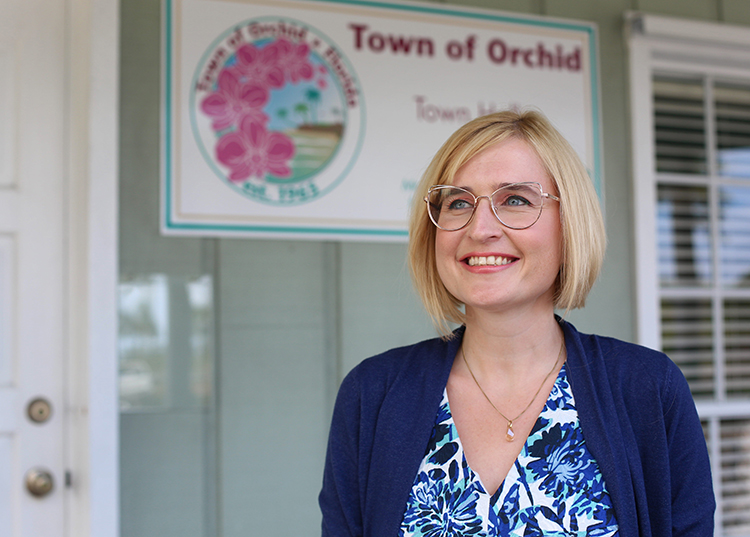
The Orchid Town Council could determine the fate of the Children’s Trust of Indian River County when it decides whether to participate in next year’s referendum on a new taxing district to fund proven and impactful programs to improve the health and well-being of the community’s youth.
Orchid Town Manager Cherry Stowe said council members, who received a presentation from Children’s Trust representatives earlier this month, will vote on the issue at the Feb. 15 meeting.
The County Commission voted unanimously in May to direct County Attorney Dylan Reingold to continue planning for a November 2022 referendum on the proposed property-tax increase and present the initiative to the county’s five municipalities.
The Vero Beach, Sebastian and Fellsmere city councils already have endorsed their municipalities’ participation in the referendum, which, if approved by a majority of the county’s voters, would raise $5 million to $10.5 million per year.
The Indian River Shores Town Council, however, voted unanimously last month to not be included in the referendum, delivering a considerable blow to Children’s Trust proponents.
While Shores residents make up only 2.7 percent of the county’s population, they provide 17.7 percent of the county’s property-tax revenues. Orchid’s 350-plus homeowners generate 2.3 percent of the county’s property-tax revenues.
So if Orchid follows the Shores’ lead, Children’s Trust backers will lose 20 percent of the county’s property-tax base, which would noticeably reduce the revenues available to fund programs.
County Commission Chairman Peter O’Bryan said the loss of the island towns also could make the initiative difficult to pass.
“If both towns opt out and the citizens group promoting this initiative still decides to go forward with the referendum, it’ll be on the ballot,” O’Bryan said. “But how difficult will it be to get a majority of voters in Vero Beach, Sebastian, Fellsmere and the unincorporated county to approve it if Indian River Shores and Orchid opt out?”
The proposed referendum would ask voters to approve an increase in their property taxes for 12 years – beginning with 25 cents per $1,000 of assessed value for the first four years, then rising to about 38 cents for the final eight.
The County Commission currently funds youth services through property-tax revenues, committing 12.5 cents per $1,000 of assessed value through its Children’s Services Advisory Committee.
Children’s Trust Exploratory Committee facilitator Lisa Kahle said her group was “disappointed but not discouraged” by the Shores Town Council’s decision and that members remain “hopeful.” She said the Shores’ vote doesn’t derail the referendum.
“There are paths forward for the Children’s Trust,” Kahle said. “The Exploratory Committee is considering all of the options and will know more about the next steps in the next couple of weeks.”
She said the committee will also discuss its options if the Orchid Town Council also votes to opt out, which she admitted would be a significant loss – one that likely would force proponents to “re-examine and possibly modify” its strategies.
“We’re taking the long view of what this community needs to support children,” Kahle said, adding that the committee would seek to postpone the referendum if members weren’t confident the initiative would be approved.
According to minutes from last month’s meeting, Indian River Shores Town Council members’ reasons for rejecting participation in the Children’s Trust referendum included the 12-year term of the proposed tax, escalating millage rates and general opposition to special taxing districts.
Mayor Brian Foley was concerned that town residents would be paying a disproportionate share of the revenues used to fund the initiative, and he said merely participating in the referendum would disenfranchise town voters.
“If 100 percent of our voters vote against it, but the majority of the county approves it,” Foley said, “we are still in the special taxing district for 12 years.”



